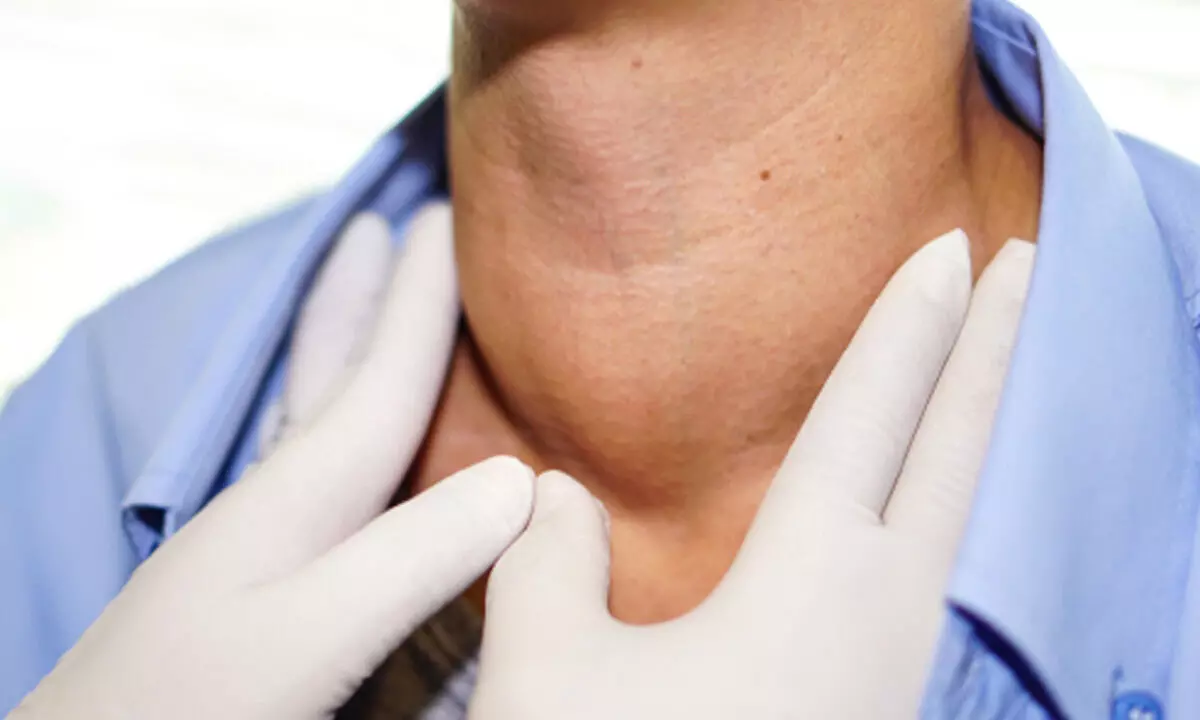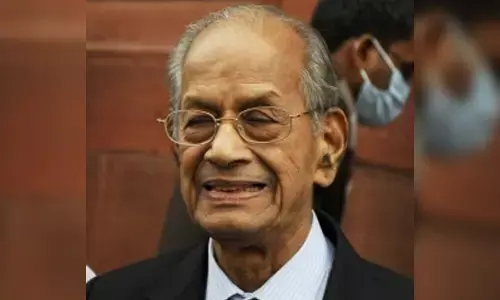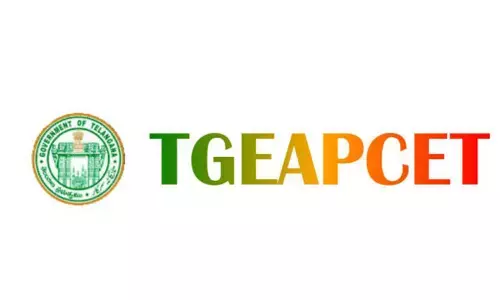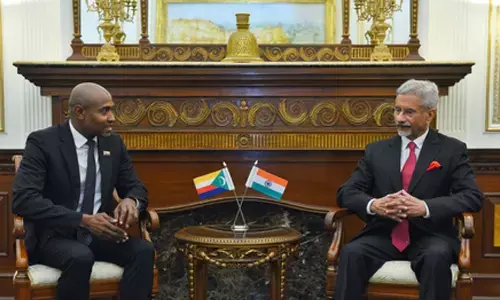Massive complex neck tumour weighing 523 gm successfully removed

A 58-year-old woman, Reema Devi (name changed) from Samastipur, Bihar, had endured a significant swelling in her neck for over two decades.
Bengaluru: A 58-year-old woman, Reema Devi (name changed) from Samastipur, Bihar, had endured a significant swelling in her neck for over two decades. This growth, which weighed an astonishing 523 grams, led to considerable difficulties in breathing and swallowing, greatly impacting her daily life. She consulted Dr. PSV Rao, Visiting Consultant- Endocrine Surgeon at Manipal Hospital Hebbal, for her problems.
At Manipal Hospital, Dr. Rao conducted comprehensive medical evaluations and diagnosed her with a multinodular goitre—an enlarged thyroid gland characterized by multiple nodules.
Elaborating on Reema Devi’s condition, Dr. Rao stated, “Multinodular goitre can arise from various causes, most commonly iodine deficiency, which leads to an enlarged thyroid as the gland attempts to produce sufficient hormones. In many countries, iodization of table salt is a key public health measure designed to prevent this condition. Symptoms of multinodular goitre may include visible neck swelling, difficulty in swallowing, hoarseness of voice, neck pain, and breathing difficulties, particularly when the growth compresses surrounding structures.”
After arriving at a definitive diagnosis, Dr. Rao decided on the surgical removal of the goitre. However, significant complications needed to be considered. Pre-surgical anesthetic stabilization posed another major challenge, considering the goiter’s size. Also, her hypertension and diabetes had to be managed.
The anaesthetic team anticipated difficulties in securing the airway safely due to the large swelling. They opted for a specialized technique called awake fibreoptic intubation, which allows real-time visualization of the airway. This method paired with a nerve monitoring enabled endotracheal tube, minimized the risk to the voice box and its nerves.
Instead of the conventional approach that involves an incision at the lower level of the neck, Dr. Rao used his original surgical technique that involved a high incision at the upper neck. The surgery lasted about four hours, during which the entire goitre was surgically removed safely without a blood transfusion. Dr. Rao also performed a “neck-lift” technique, traditionally used by plastic surgeons. This approach provided excellent cosmetic results by avoiding skin folds in the neck and minimizing visible scarring, as the incision was strategically placed in a natural skin crease at the top of the neck where the scar is not seen.
Recognizing the potential for airway collapse after goitre removal, the surgical team fixed the trachea to the overlying muscles. Both surgical and anesthesia team were fully equipped with emergency airway management tools for a tracheostomy if necessary. Fortunately, the endotracheal tube was successfully removed post-surgery without complications, ensuring the patient’s safety and proper oxygenation throughout the procedure.
With the collaborative efforts of experienced and skilled surgeons and anaesthetists at Manipal Hospital, Reema Devi was successfully treated for a massive multinodular goitre. This case underscores the critical importance of preoperative assessment, meticulous planning, surgery, and advanced anaesthetic techniques in managing such complex cases. Reema Devi went home in good health, 3 days after surgery with thyroxine, vitamin and calcium supplements, and medication for hypertension and diabetes.














